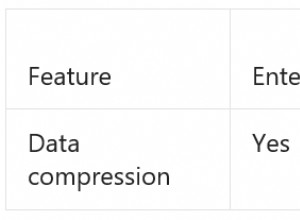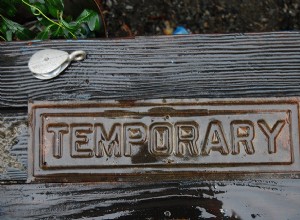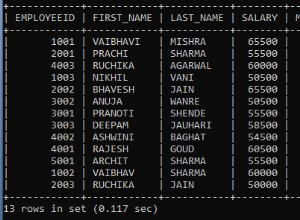Von hier :
Windows
- Suchen Sie die my.ini, die im MySQL-Installationsordner gespeichert ist.
Beispiel:C:\Program Files\MySQL\MySQL Server 5.1\my.ini
- Öffnen Sie die „my.ini“ mit unserem bevorzugten Texteditor.
#Path to installation directory. All paths are usually resolved relative to this.
basedir="C:/Program Files/MySQL/MySQL Server 5.1/"
#Path to the database root
datadir="C:/Documents and Settings/All Users/Application Data/MySQL/MySQL Server 5.1/Data/"
Suchen Sie das “datadir” , hier speichert MySQL die Daten in Windows.
Linux
- Suchen Sie my.cnf mit dem Befehl find / -name my.cnf.
example@sqldat.com:~$ find / -name my.cnf
find: /home/lost+found: Permission denied
find: /lost+found: Permission denied
/etc/mysql/my.cnf
- Sehen Sie sich
my.cnfan Datei wie diese:cat /etc/mysql/my.cnf
example@sqldat.com:~$ cat /etc/mysql/my.cnf
#
# The MySQL database server configuration file.
#
# You can copy this to one of:
# - "/etc/mysql/my.cnf" to set global options,
# - "~/.my.cnf" to set user-specific options.
#
[mysqld]
#
# * Basic Settings
#
user = mysql
pid-file = /var/run/mysqld/mysqld.pid
socket = /var/run/mysqld/mysqld.sock
port = 3306
basedir = /usr
datadir = /var/lib/mysql
tmpdir = /tmp
language = /usr/share/mysql/english
skip-external-locking
- Suchen Sie den
“datadir”, hier speichert MySQL die Daten im Linux-System.




